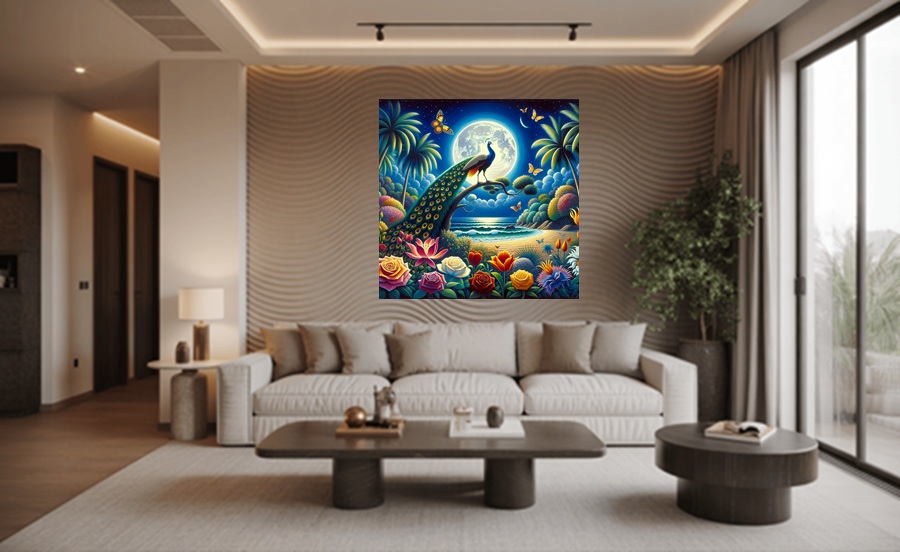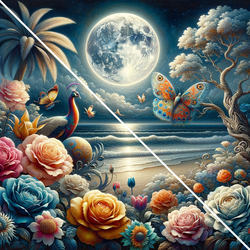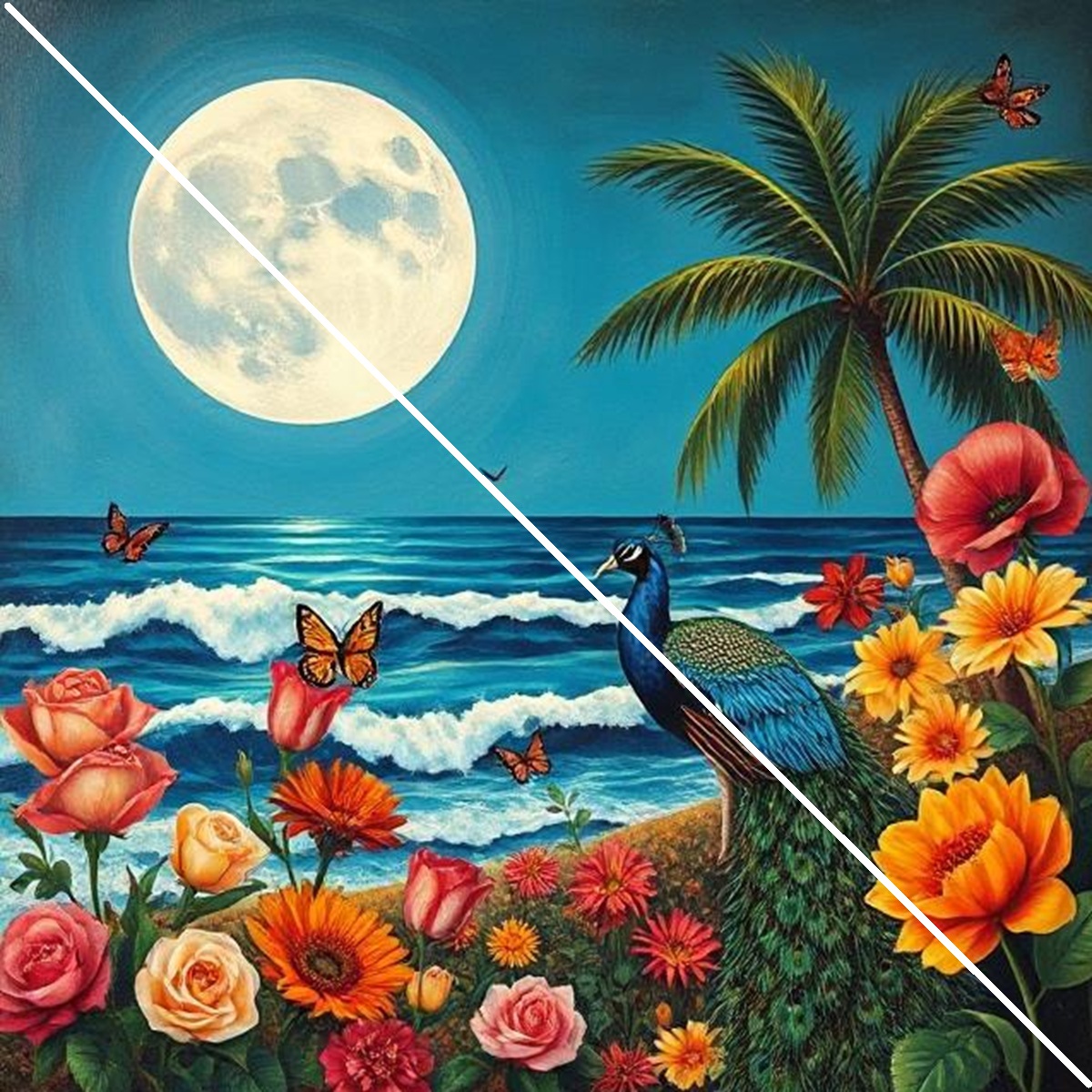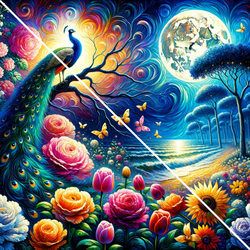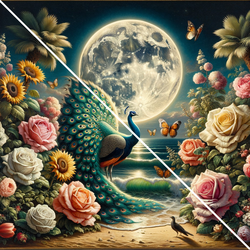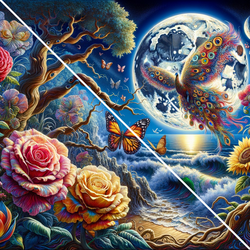EYEWHEEL ARTWORKS COMPANY-PEACOCKS

THIS PAGE IS JUST TO GIVE YOU EXAMPLES OF WHAT OUR OTHER NINE WEB PAGES OF IMAGES SHOW IN THE QUALITY, IN OUR PRESENT INVENTORY. PLEASE UNDERSTAND WHY WE INCLUDE THE WHITE LINE, IT IS FOR OBVIOUS REASONS. THE MODEL NUMBER IS BELOW THE IMAGE.
Beautiful canvas framed images on the walls of a house serve multiple purposes:
THE SILENT Expression: Framed images, such as art, photographs, or CANVAS prints, reflect the homeowner’s personality, tastes, or experiences, making the space feel unique and personal.
Aesthetic Appeal: The serene combination of natural elements like a lake, swan, flowers, and trees creates a visually pleasing scene. Such beauty can evoke feelings of calm, peace, and appreciation for nature’s harmony.
Conversation Starters: Unique or striking pieces can spark discussions with guests, sharing stories or interests tied to the images.
Emotional Impact: Natural imagery often triggers positive emotions, such as tranquility, joy, or nostalgia. The graceful swan, vibrant flowers, and serene lake can serve as a reminder of purity, elegance, and the simplicity of nature, offering an emotional escape from daily stress.
Inspiration and Reflection: The picturesque setting can inspire creativity, encourage mindfulness, or prompt introspection. It might remind viewers of personal memories, aspirations, or the importance of preserving natural environments.
Personal Expression: Canvas art reflects your personality, tastes, and values, making your space uniquely yours. Whether it's bold abstracts or serene landscapes, it tells a story about who you are.
The basic history of canvas art mounted to walls in homes spans centuries, evolving from practical and religious uses to a widespread decorative art form.
Real, Real Early Beginnings (Caveman Era, 20,000 years ago):
They, the "Cavemen" were intelligent enough to draw their own wall art themselves. For example......Archaeologists have been unraveling the truth behind the mysterious artwork of Lascaux Cave, exploring the lives of our ancestors almost 20,000 years ago. Amid the Second World War, four young boys unearthed a Paleolithic masterpiece when they stumbled upon a cave in southwest France.
Early Beginnings (Pre-Renaissance, Before 1400s):
Wall-mounted art predates canvas, with murals, frescoes, and tapestries adorning homes of the wealthy in ancient Egypt, Greece, Rome, and medieval Europe.
Canvas, made from hemp or linen, emerged as a painting surface in the Middle East around the 12th century but was not yet common in homes.
Most domestic art consisted of religious icons or woven tapestries, often hung on walls for insulation and decoration in castles or affluent homes.
Here are some other key considerations and "good things" to look for when selecting wall art:
The Appeal: Choose art that resonates with your personal style or complements your home’s decor. This could include vibrant canvas paintings, serene landscapes, or abstract pieces that add color and personality to your space. Art with elements like nature (e.g., lakes, swans, flowers, or trees) can evoke calmness and beauty, as you’ve previously noted.
Size and Proportion: Select pieces that fit the scale of your walls. Large artwork can serve as a focal point in spacious areas. A small piece can feel lost on a large wall, while oversized art can overwhelm a small space.
Emotional Connection: Choose art that evokes positive emotions or reflects your personality, whether it’s a bold statement piece or something soothing. This aligns with your interest in art’s ability to create a specific mood in your home.
Versatility and Theme: Consider art that ties into the room’s purpose or theme, such as calming nature scenes for a bedroom or vibrant abstracts for a living room. Cohesive themes can unify your home’s aesthetic.
Framing and Presentation: Decide between framed or unframed art based on your style. Framed pieces, as you mentioned before, add a polished look, while gallery-wrapped canvases offer a modern, clean appearance.


